When it comes to dump trailers, an integral component that warrants careful consideration is the battery. A high-performing battery ensures smooth operation, reliable functionality, and enhanced efficiency in your hauling tasks. However, determining the appropriate battery for your dump trailer involves various factors, including the trailer’s specifications, intended use, and compatibility with your truck’s electrical system. This article provides an in-depth exploration of the types of batteries suitable for dump trailers, how to select the right one, and maintenance tips to prolong battery life.
Understanding Dump Trailer Battery Requirements
Typical Power Needs and Functions of a Dump Trailer
Dump trailers are essential for transporting heavy loads, often featuring hydraulic systems that require substantial electrical power. This power is exclusively provided by a battery, critical to powering the hydraulic pump, which raises and lowers the trailer bed.
- Hydraulic Pump Voltage: Most dump trailers operate on 12V DC systems.
- Pump Ratings: The capacity of the hydraulic pump can vary significantly. It is essential to know the amp draw of your specific system.
- Cycle Requirements: The number of times you need the battery to power the hydraulic operation will ultimately dictate the battery size and type.
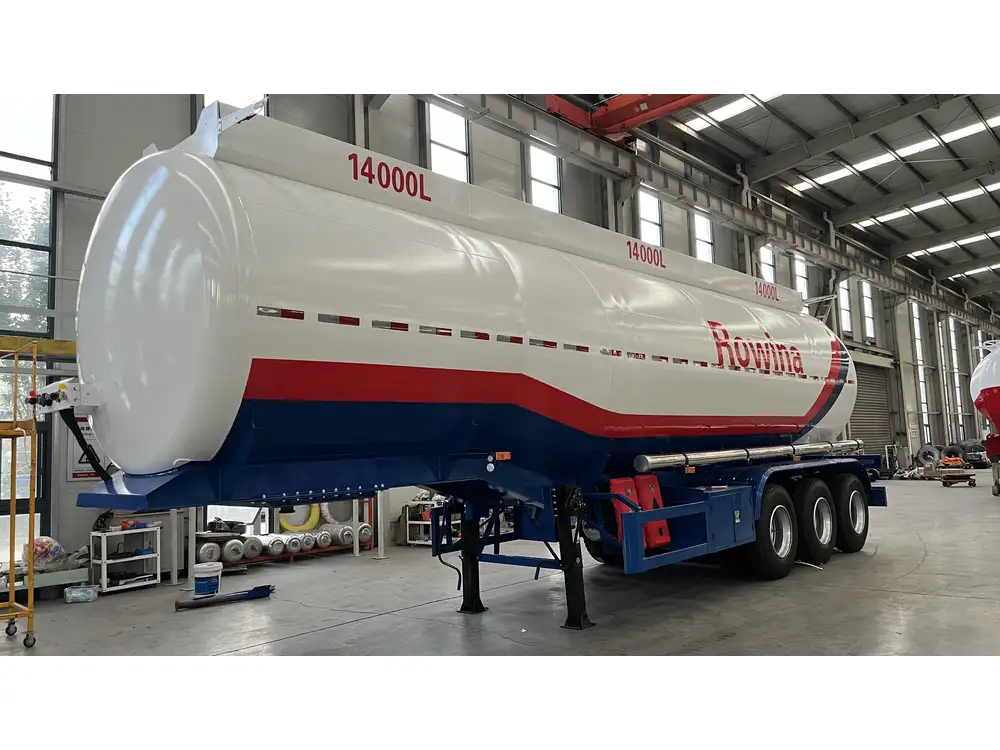
Key Factors to Consider When Choosing a Battery
When selecting a battery for your dump trailer, several factors should be considered to ensure efficiency and performance:
| Factor | Considerations |
|---|---|
| Battery Type | AGM, gel cell, or flooded lead-acid batteries. |
| Capacity | Amp-hours (Ah) rating suitable for your pump’s requirements. |
| Cold Cranking Amps | Necessary for starting the pump in low temperatures. |
| Dimensions and Weight | Ensure compatibility with the trailer and ease of installation. |
| Connection Type | Terminal layout and type; ensure compatibility with the pump. |
Types of Batteries for Dump Trailers
1. Lead-Acid Batteries
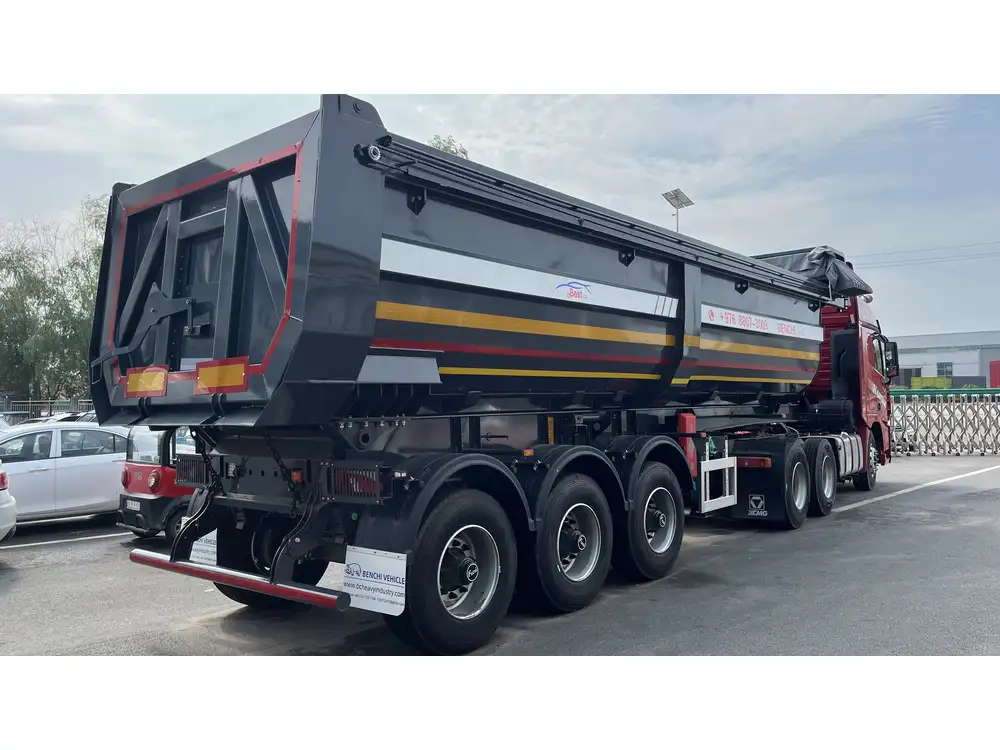
Flooded Lead-Acid Batteries
These are the traditional battery types known for their affordability and reliability. They require regular maintenance, such as checking water levels, which can be a drawback for some users.
- Pros:
- Cost-effective
- Robust performance under heavy loads.
- Cons:
- Requires maintenance
- Can leak if not handled correctly.
2. AGM (Absorbent Glass Mat) Batteries
AGM batteries are sealed and maintenance-free, making them a popular choice among users looking for a reliable option without the hassle of upkeep.
- Pros:
- Maintenance-free
- Better vibration resistance.
- Cons:
- Higher initial cost
- Heavier than some other options.
3. Gel Cell Batteries
Gel batteries utilize a silica gel to immobilize the electrolyte, making them spill-proof and safer for varied environments.
- Pros:
- Spill-proof and safe for use in any position.
- Excellent deep-cycle capabilities.
- Cons:
- Can be more expensive than flooded lead-acid batteries.
- Limited availability in some regions.

Calculating the Right Battery Capacity
When determining the right battery capacity for your dump trailer, calculating the required amp-hours is crucial. Here’s a simplified method to estimate your needs:
Step-by-Step Calculation Process
Identify the Amp Draw of Your Hydraulic Pump:
- Check the specifications of your hydraulic pump to find the amperage rating. This information is often provided in the manual or on the pump itself.
Determine the Desired Lift Time:
- How long do you need your trailer’s hydraulic system to operate?
Use the Formula: [ \text{Required Amp-Hours (Ah)} = \text{Amp Draw} \times \text{Total Minutes of Use} \div 60 ]
Account for Reserve Capacity:
- It’s prudent to add about 20% to your calculated Ah to ensure you have enough reserve capacity for prolonged or unexpected needs.
Example Calculation
- Hydraulic Pump Amp Draw: 20 A
- Lift Time Required: 2 minutes (or 0.033 hours)
Using the formula: [ \text{Required Ah} = 20 \times 0.033 \approx 0.66 \text{ Ah} ] Adding a 20% reserve: [ \text{Total Required Ah} \approx 0.66 \times 1.2 \approx 0.792 \text{ Ah} ]
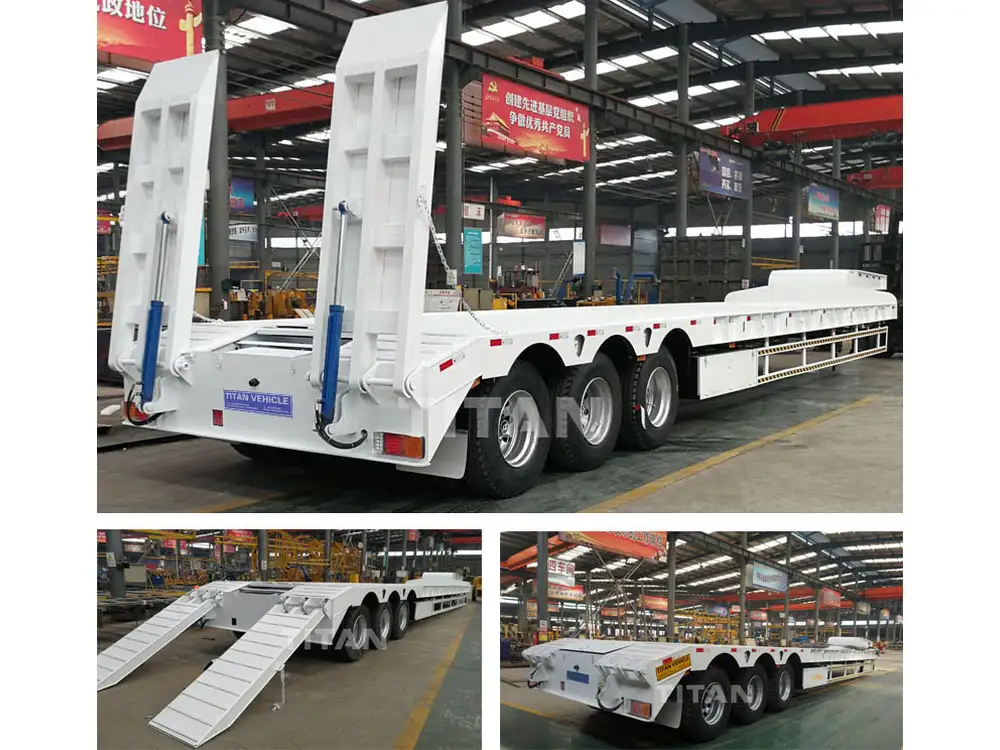
Recommended Battery Specifications
Based on the calculations, it is essential to choose a battery with an Ah rating that meets or exceeds this calculated requirement, considering your specific operational conditions.
Battery Ratings Simplified
Understanding the key ratings of batteries is essential for choosing the right one. Below is a quick guide to important battery specifications:
| Rating | Description |
|---|---|
| Voltage | Should typically be 12V for dump trailers. |
| Amp-Hour (Ah) | Measures the capacity for sustained usage. |
| Cold Cranking Amps (CCA) | Indicates the battery’s ability to start in cold conditions. |
| Reserve Capacity (RC) | Time the battery can deliver 25A before voltage drops to 10.5V. |
Installation Tips for Dump Trailer Batteries
Proper installation of your dump trailer battery not only ensures reliable operation but also prolongs the battery’s lifespan. Below are some recommended practices:
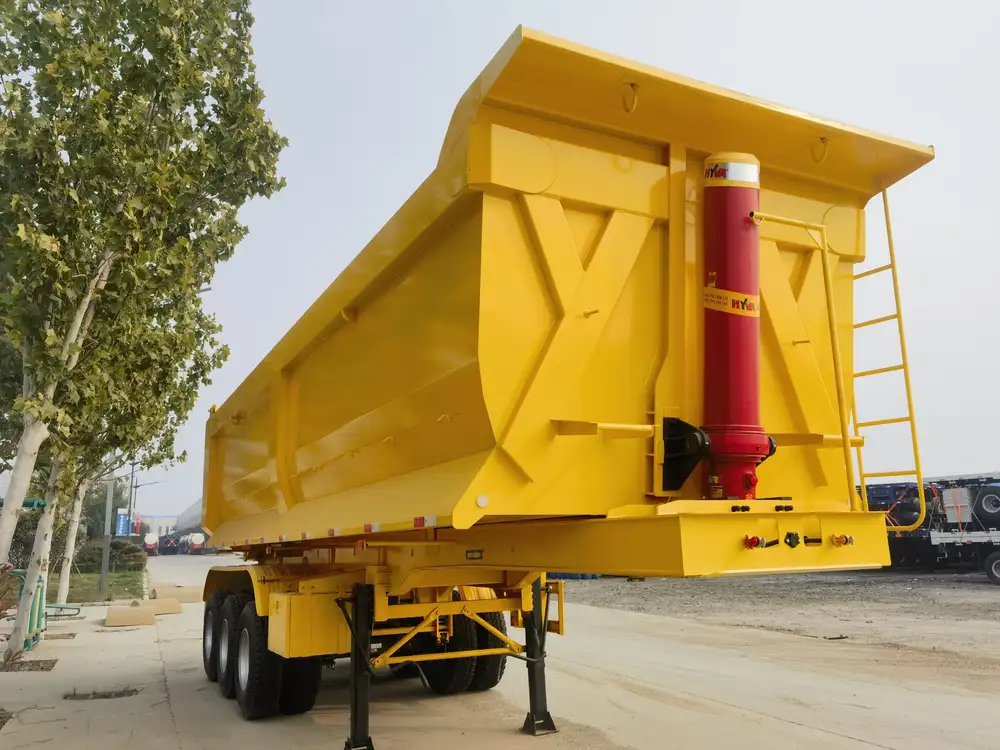
Step-by-Step Installation Process
- Select a Suitable Location: Choose a dry, secure, and well-ventilated location on the trailer frame.
- Secure the Battery Box: Use a corrosion-resistant battery box or tray to protect against impacts and environmental factors.
- Connect the Battery: Follow the color-coding for terminals – positive (red) to positive and negative (black) to negative. Ensure connections are tight to prevent any current loss.
- Check Battery Alignment: Ensure that the battery is oriented correctly (the battery terminals should be facing up) and securely fasten it in place to eliminate movement during transport.
- Inspect Wiring: Ensure that all wiring is intact, with no signs of fraying or corrosion.
Battery Maintenance for Optimal Longevity
Maintaining your dump trailer battery is vital for ensuring its long life and performance. Here are some practices to consider:
Routine Maintenance Checklist
- Regular Inspection: Check the battery terminals for corrosion and clean them if needed using a baking soda and water solution.
- Water Levels: If using flooded lead-acid batteries, regularly check the water levels and refill with distilled water as necessary.
- Charge Regularly: If the battery is not frequently used, charge it periodically to prevent deep discharge.
- Ensure Secure Connections: Regularly check all connections for tightness and signs of wear.
- Storage Conditions: Store the battery in a cool, dry place, avoiding extreme temperatures, especially during winter months.
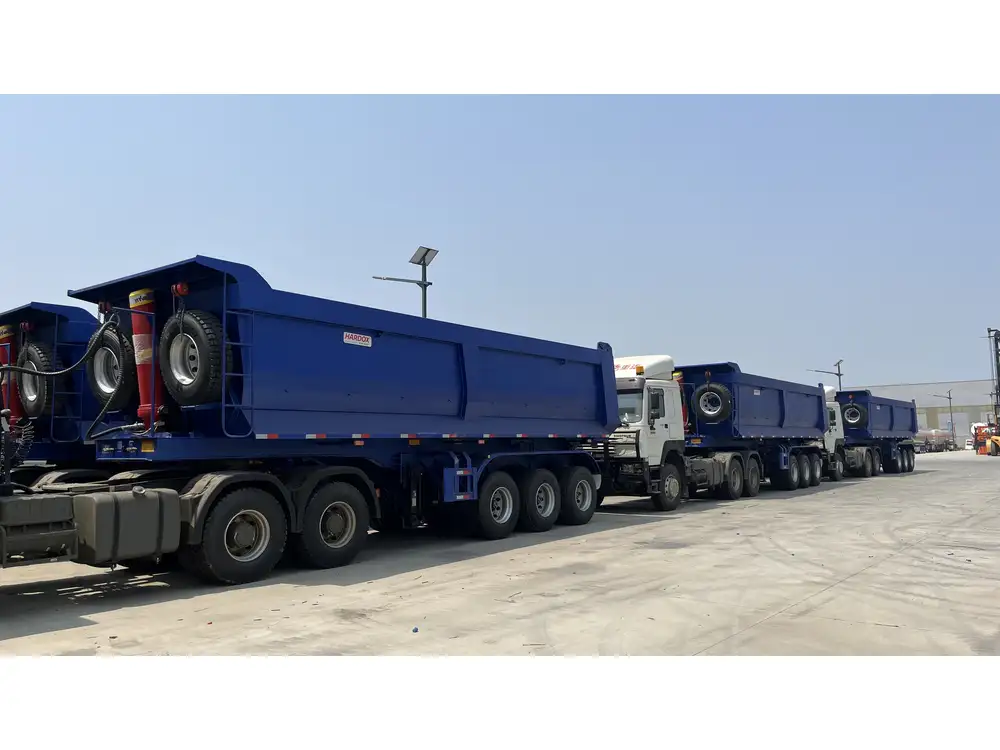
Common Questions About Dump Trailer Batteries
What is the average lifespan of a dump trailer battery?
The average lifespan varies based on type and use, but generally, lead-acid batteries last 3-5 years, while AGM batteries can last up to 7-10 years with proper maintenance.
Can I use a car battery for my dump trailer?
While it’s technically possible, it’s not recommended. Car batteries are designed for high cranking amps for short durations, while dump trailers require deep-cycle batteries for sustained use.
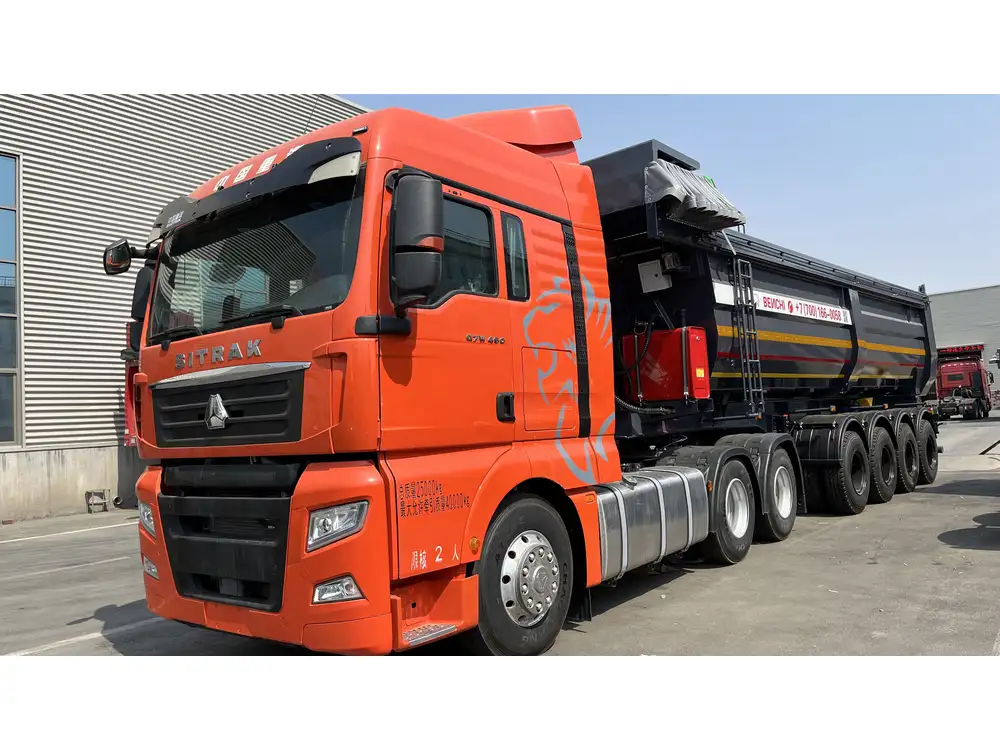
How can I tell if my battery is failing?
Signs of battery failure include slow operation of hydraulic systems, erratic lifting and lowering, physical swelling, or leakages.
Conclusion
Selecting the right battery for your dump trailer is crucial for achieving optimal functionality and reliability. Understanding the specific needs of your hydraulic system, coupled with careful battery selection and maintenance, will ensure that your trailer performs well over time. By considering factors such as battery type, capacity, and maintenance protocols, you can ensure seamless operation, allowing you to focus on your hauling tasks without unnecessary interruptions.
Choose wisely, maintain diligently, and ensure your dump trailer is always ready to tackle the toughest jobs!



